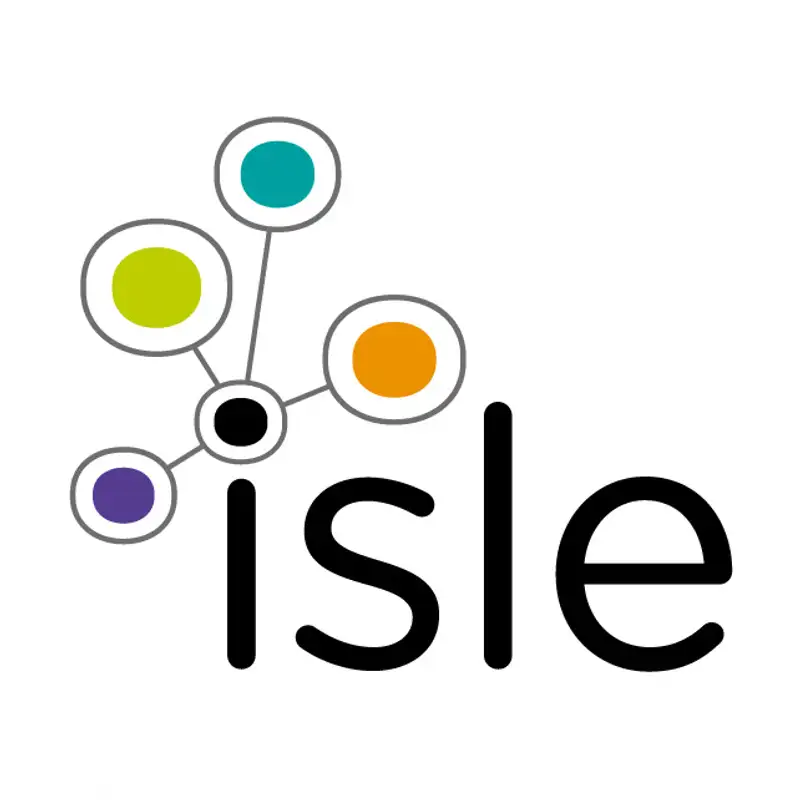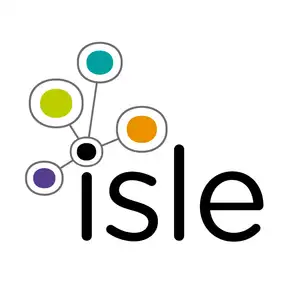
Transitioning to a Smart Water Society
[00:00:00] Piers Clark: Welcome to the Exec Exchange, 15 minute podcast in which a leader from the water sector shares a story to inspire, educate and inform other water sector leaders from across the globe. My name is Piers Clark and today my guest is Hans Goossens, the chief executive for De Watergroep. And we're going to be talking about the transition of the water sector. Hans, thank you very much for joining me.Let's talk a little bit about you. You've been with De Watergroep for seven years. Let's start with what were you doing before you joined?
[00:00:37] Hans Goossens: Before I joined the De Watergroep, I was working almost 25 years with Norsk Hydro Yara International- Norwegian multinational fertilizer company. I actually started working there after finishing my PhD by a pure coincidence; attracted by the company culture. And I developed an interesting career international in different type of positions, but at a certain moment, also coming into, let's say the challenge of water availability, water scarcity. As a fertilizer company is dealing with agricultural food production, water scarcity is a threat or can be a threat, but as well an opportunity to the business.
[00:01:26] Piers Clark: Yeah. So, you'd had a full career, a full career in the agriculture fertilizer sector, and then the opportunity came up for this because you went straight into the chief exec role, didn't you?
[00:01:37] Hans Goossens: Yes.
[00:01:37] Piers Clark: What drew you to De Watergroep?
[00:01:39] Hans Goossens: I think working 25 years, multinational, means that you're very often in planes. You see very interesting parts of the world and I had the luck actually also to get in touch with different aspects of running a business from R&D to operations, to quality management, to product management, innovation, commercial. And that meant actually that I was coming to a point that I was ready to make a jump to a new role as a CEO of a more local based company who could expand internationally; that was my idea. But then De Watergroep came by and actually having got the passion about the water challenge for me was a no brainer to move from a multinational privately owned company, stock listed company, to a local public company.
[00:02:41] Piers Clark: So let's talk about De Watergroep. Where are you? How many people do you serve? What activities do you do?
[00:02:47] Hans Goossens: De Watergroep actually was founded more than 100 years ago as a national company, but then Belgium is a regionalized country. De Watergroep is the Flemish public water company, starting from drinking water company, but moved into being an integral water company also taking care of the waste water. We are serving about 3.4 million people in Flanders with about 1, 600, employees, and we're serving in about 177 municipalities. That makes us, in fact, the largest public water company in Belgium, indeed.
[00:03:25] Piers Clark: I've got to ask, so you did your international travel and when you were looking to what your next step might be, you thought, hell, I might do more international work.
Of course, you're now, De Watergroep is just in Belgium. That's right, isn't it? You don't have any international arms. Do you miss it?
[00:03:40] Hans Goossens: Actually, I'm not missing it. Because the challenges here locally are huge enough to keep me inspired and motivated. At the same time, I get also quite some positive energy from my role as a president of Water Europe, which is a European organization. We call ourselves the promoter of innovation and technology development for the water sector. And that means that it gives me all opportunities to keep on having the international contacts and to have my horizon broader than just the local horizon.
[00:04:17] Piers Clark: We could do a podcast specifically on Water Europe, couldn't we? Let's move to the topic we were going to cover, which is around the transition both of society and the water sector. I know it's something you're passionate about. Tell me more.
[00:04:31] Hans Goossens: For me, it's clear that the water sector is going through a transition, a water transition, which you could, to some extent, compare to the energy transition. But I would call it more than just a transition of a sector. It's a transition of a society. And that transition is actually not because we like to do it, or we have decided in some or other business decision that we need a transition. I think the transition or the need for transition comes from climate change that we experience in climate extremes. And that means more frequent and longer periods of drought, with more heat waves, higher temperatures. That requires that we need to be able to store the water better for covering the longer periods of drought. But also, to have peak capacity available to serve the peak demand at hot days, when people need more water. At the same time, there is this very concentrated, massive rain that comes very locally down.
[00:05:34] Piers Clark: We're recording this in early December 2024. And we've just had Storm Dara sweep across the United Kingdom.
[00:05:42] Hans Goossens: And in Belgium two years ago, we had, not to the same extent as the Valencia incident, but a warning that, it's not just the South of Europe, it can happen all over Europe. I would even say it will happen all over Europe. That's why we need to be prepared. We need to build a water smart society, but also a water resilient society. Resilience against water scarcity, but also resilience against flooding. And that means that our system, which we have built all over Europe for delivering water services in a region with moderate rainfalls. We need to rebuild and rethink and redesign so that it is actually robust in all type of weather extremes.
[00:06:26] Piers Clark: Yeah, the infrastructure that we've been building and living with for the last 5-10 decades is arguably no longer fit for purpose and certainly won't be fit for purpose if we continue on the track that we're on now. Increasing volatility, more frequent storms, more frequent droughts; you're the chief exec of De Watergroep, tell me, what is De Watergroep doing to move on that transition journey?
[00:06:51] Hans Goossens: I think one of the things is that we need to invest in a diversification of our water sources. That means we are not just looking historically. We were almost purely based a hundred years ago, definitely on groundwater. Digging a hole, getting the water almost clear from the underground and serving it through a pipeline network. Now we invest in multiple sources. That means not only surface waters, but also wastewater. That can be urban wastewater as a source for making drinking water, but that can be also where we are having a project with a sugar refinery, where let's say the process water from the beet processing is looked into for using that as a local source for drinking water. So, it's about multiple sources, but it also means that as we have these extremes spread in time and location that we need to interconnect all these different sources. The times where one local source serves the local community, these are gone. Because if this local community is in a drought location, the continuity of supply cannot be guaranteed.
[00:07:59] Piers Clark: The water industry can't do this alone. It's got to be a societal shift because we need the public to follow us on this journey and be more accepting, or be appropriately accepting of these different water sources, some of which will result in people having stronger opinions than they might've done in the past. Have you experienced that in Belgium?
[00:08:18] Hans Goossens: I'd say at, at first instance, people, um, are not feeling very comfortable with, uh, let's say the message that we're looking into utilizing wastewater for making drinking water. But with good communication, with good transparency, and with showing the example, people, are getting more and more comfortable and adopted to the idea of actually drinking water. There is a company which is purifying the water to the right standard with the whole process of analysis and being transparent about this gives the people the confidence that it is a valuable source for drinking water.
[00:09:01] Piers Clark: Really good point around trust because the public, if they trust the local water company, water authority, then they'll come with you on the journey because they trust that you're not trying to do something that's just for economic expediency. What about flipping to the wastewater side? Anything there on the resilient side that you'd like to comment on?
[00:09:21] Hans Goossens: I think on the resilient side, on the wastewater the link is more obvious to see between water and energy. There is a lot of energy still in wastewater, which can be recovered. And there, let's say adapting the process, doing the right investments, can make a wastewater not only a resource for making fresh drinking water, but also a resource for energy and material; coming back to my previous job on agriculture and fertilizers.
[00:09:47] Piers Clark: So, it's funny. We're, roughly the same age, I think- in our mid-fifties. And at the start of my career, the idea that I would have been talking to someone in Belgium about dealing with the volatility and the water shortages, feels a world away. And that's only been 30 years. So, one's terrified to think what another 30 years will look like. We like to finish with a bit of a cheeky question to you, "If you could go back 30 years to the 1990s, what advice would you give to Hans Goossens?"
[00:10:17] Hans Goossens: I need to disappoint you because I cannot go back. Time has only one direction and that is forward. So, regretting the past or trying to redo the past will not change the present, but we can change the future if we do things today differently than we have done them in the past. And what would I do today and tomorrow differently than in the past? I would put more attention, more emphasis into finding the right balance between nature and human activity. That we need to understand, well, how human activity is interacting with nature, impacting nature. How also nature is a buffer to create resilience. A very straightforward example on making meandering rivers into straight canals. Bringing the water right to the sea can be a good solution for the transportation of the goods and against flooding. But in cases of drought, it's better than to restore wetlands.
[00:11:23] Piers Clark: Thank you very much. It's great to hear about the transition, both within society and the water sector. You have been listening to the Exec Exchange with Piers Clark. I've been talking to Hans Goossens, the chief executive for De Watergroep.
I hope you can join us next time. Goodbye.
